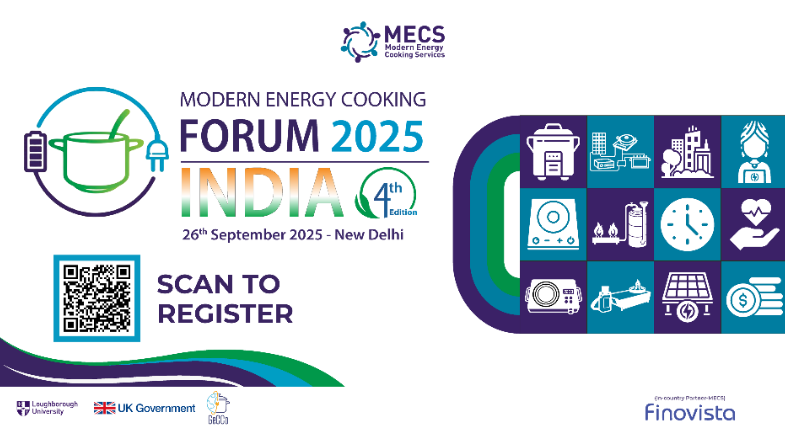Modern Energy Cooking Forum 2025
Modern Energy Cooking Forum 2025
The Modern Energy Cooking Forum (MECF) 2025, the fourth edition of this flagship event, will bring together key stakeholders and experts from government, industry, academia, and civil society to discuss and shape the roadmap of clean and electric cooking adoption in India. The forum will serve as a platform to review the progress of the MECS programme, conduct the 2025 Stocktake, and identify strategic interventions for scaling modern energy cooking solutions. Key topics will include policy, technology, financing, consumer behaviour, and supply chain development. A key highlight as always will be the Clean Cooking Technology Showcase, featuring the latest innovations in eCooking appliances and solutions tailored for Indian households.
Access to energy is fundamental to daily life, but its impact on the environment has necessitated a global shift towards cleaner, sustainable sources. Clean cooking—using LPG, biogas, ethanol, solar, or electricity—is central to SDG 7. In India, despite near-universal electricity access and expanded LPG distribution under PMUY, 34% of households still rely on traditional biomass fuels, leading to over 1.2 million premature deaths annually due to indoor air pollution. Electric cooking (eCooking) presents a sustainable and efficient alternative, offering combustion-free operation, improved indoor air quality, and better energy efficiency (up to 83% for induction stoves). However, adoption remains low at just 5%. The Bureau of Energy Efficiency (BEE) and other government bodies are promoting adoption through initiatives like the “GoElectric” campaign and voluntary star labelling. Yet challenges remain—consumer awareness, behavioural resistance, high upfront costs, inadequate infrastructure, and limited domestic manufacturing capacity. A comprehensive national strategy, supportive policies, improved supply chains, and strong consumer engagement are essential to scale adoption. Devices like induction stoves, EPCs, and smart appliances are gaining urban popularity, but their high import dependency and weak after-sales infrastructure in rural areas must be addressed.
The policy environment is evolving, with schemes like NECP, RDSS, PM Surya Ghar, and PLI for renewable energy supporting the shift to electric cooking. Financial innovation, especially through carbon markets, is also opening new avenues. Clean eCooking projects can generate carbon credits by reducing emissions, helping manufacturers offer devices at subsidised rates. IoT-enabled devices improve Monitoring, Reporting, and Verification (MRV), strengthening the credibility of carbon finance. India’s emerging Indian Carbon Market (ICM) and inclusion of clean cooking in Article 6 mechanisms provide a policy boost.
This year as part of the MECS Stocktake 2025, key stakeholders will come together to assess progress since 2020, identify gaps, and co-develop a roadmap of scalable interventions to be implemented by 2030. Through bilateral consultations and workshops the stocktake will build a coordinated action plan to accelerate the clean cooking transition in India and create replicable models for the Global South.


 Alert
Alert